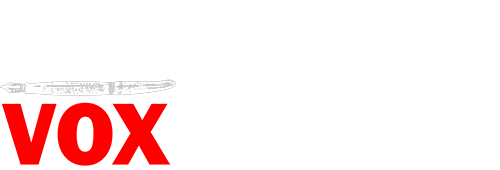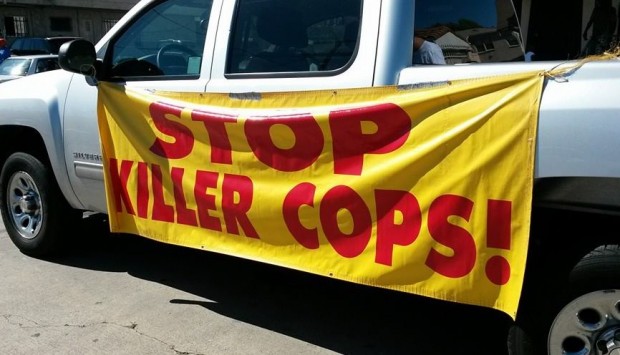 Normally a headline like that on our website would invoke visions of some right-wing fundamentalist crazy trying to push theocracy down our throats, but not only is that not the case, but this is something we can get behind. Kam Williams introduces us to Professor Celia Chazelle (pictured) from the College of New Jersey. Prof. Chazelle was invited to Ireland to speak on theological issues, but was also moved to use the opportunity to call on Christians to be more vigilant into helping the poor and eradicating poverty. Her church is Sacred Heart Church in Camden, NJ not only the poorest city in the US but also listed as the most dangerous. Parishoners like Prof. Chazelle as well as her pastor Father Michael Doyle are examples of how the problem can be solved if only good people take the opportunity to make the postive happen. We have provided links to the Camden Center of Transformation which is a community organization connected to the Church that works for the betterment of the community, as well as to books authored by Prof. Chazelle that is worth reading.
Normally a headline like that on our website would invoke visions of some right-wing fundamentalist crazy trying to push theocracy down our throats, but not only is that not the case, but this is something we can get behind. Kam Williams introduces us to Professor Celia Chazelle (pictured) from the College of New Jersey. Prof. Chazelle was invited to Ireland to speak on theological issues, but was also moved to use the opportunity to call on Christians to be more vigilant into helping the poor and eradicating poverty. Her church is Sacred Heart Church in Camden, NJ not only the poorest city in the US but also listed as the most dangerous. Parishoners like Prof. Chazelle as well as her pastor Father Michael Doyle are examples of how the problem can be solved if only good people take the opportunity to make the postive happen. We have provided links to the Camden Center of Transformation which is a community organization connected to the Church that works for the betterment of the community, as well as to books authored by Prof. Chazelle that is worth reading.
Kam Williams
What ordinarily comes to mind when one thinks of a lecture about medieval Europe is a talk a lot less relevant to present-day worldly concerns than the keynote speech recently delivered by Professor Celia Chazelle at a conference held at University College Cork entitled “Envisioning Christ on the Cross.” Chazelle, who chairs the Department of History at The College of New Jersey, had been invited to Ireland to speak about “The Mass and the Eucharist, ‘Image’ of the Crucified Christ, in the Christianization of Early Medieval Europe.”
While the bulk of her otherwise academic address certainly explored that topic at considerable depth, she prefaced her remarks by reading a poem by her Irish-born pastor, Father Michael Doyle, about the seeming futility of the never-ending fight to eradicate the suffering evident in his midst. For 35 years now, Doyle has presided over Sacred Heart Church in Camden, the poorest city in the US, where
over 90% of the population is black and Hispanic.
With the assistance of volunteers like his dedicated parishioner Celia Chazelle, Doyle’s been directly ministering to the needs of the poor via a number of Sacred Heart-based organizations, among them the church’s St. Vincent de Paul Society and affiliated Heart of Camden. These sponsor a weekly dinner, a thrift store, building and home renovations, and a variety of other social programs. Another affiliated organization, the Center for Transformation, oversees a greenhouse, community gardens, and neighborhood cleanups, engages in environmental education and activism in the area, and is in the final stages of establishing a retreat center. All this is located right within Camden’s deteriorating exoskelton.
Professor Chazelle made a smooth segue from a discussion of Camden to the Christianization of Europe during the early Middle Ages by pointing out the parallels between the frustrations of Father Doyle as expressed in the poem and the path of Jesus, a path marked by failure yet leading to resurrection, symbol of faith in the promise of a better tomorrow. The thrust of her ensuing thesis explored the rise of Christianity as a grassroots movement emanating from the bottom up. This incendiary idea cuts a sharp contrast with the conventional thinking of many historians who tend to focus on the conversion of kings and the rest of the aristocratic class as the seminal force.
Nonetheless, in deliberate fashion, Chazelle proceeded to mount a most persuasive case, convincingly threading the fruits of her painstakingly- researched, scholarly efforts with additional anecdotal asides about Father Doyle. Furthermore, the lecture was augmented with photographs effectively juxtaposing contemporary Camden with historical artifacts illustrating the religious rite of the Eucharist, the reenactment of the Last Supper, as routinely practiced by the salt of the Earth a millennium ago. Ultimately, Chazelle came full circle, returning to share some final insights about her beloved Sacred Heart parish before closing with a rhetorical flourish suggesting that one might partake in the holy tradition of sharing Christ’s body and blood beyond the sacrosanct confines of church in such unlikely environs as a soup kitchen ministering to the homeless or even at the dinner table while simply breaking bread with family and friends.
The earnest, inspirational sentiments of a foot soldier in the struggle for social justice.
To make a donation or to do volunteer work at the Camden Center of Transformation, visit: http://camdencenterfortransformation.org/you.htm
To order a copy of Professor Chazelle’s book “The Crucified God in the Carolingian Era,” visit: http://www.amazon.com/gp/product/0521039452?ie=UTF8&tag=thslfofire-20&linkCode=as2&camp=1789&creative=390957&creativeASIN=0521039452
To order a copy of Professor Chazelle’s book “Paradigms and Methods in Early Medieval Studies,” visit: http://www.amazon.com/gp/product/1403969426?ie=UTF8&tag=thslfofire-20&linkCode=as2&camp=1789&creative=390957&creativeASIN=1403969426


More Stories
What happened to Jared Taylor?
Had a great time at the RNC (mostly because we’re nuts)!
All Out for April 23, Stone Mountain Georgia